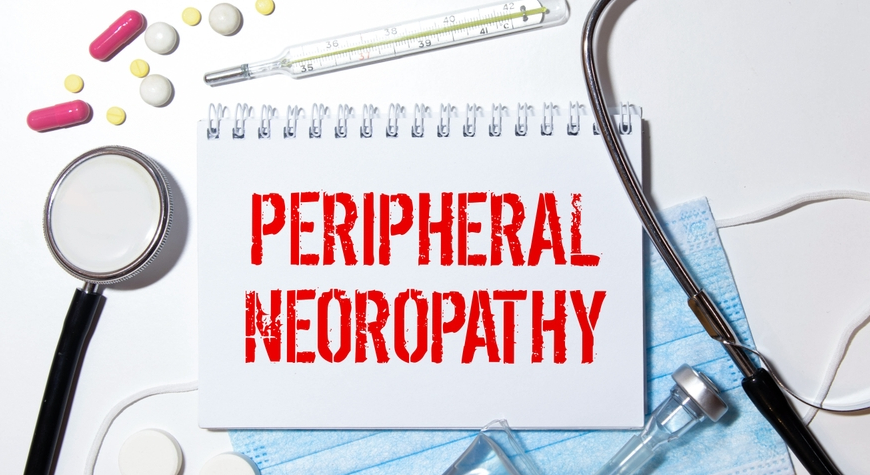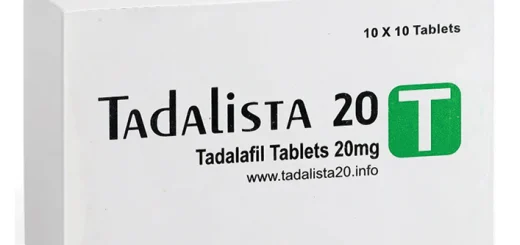Natural treatment for peripheral neuropathy

Peripheral Neuropathy and Available Natural Treatments:
Through this article, we want to spread awareness about neuropathic pain and how to cope with it better. We also discuss some natural treatments which are proven efficient.
Neuropathic pain:
A type of pain known as neuropathic pain develops when your body’s nerves don’t function properly. The brain receives signals from various regions of your body via nerves, such as when you touch something hot and your brain alerts you to the fact that it is hot. But occasionally, these nerves may suffer harm or cease to function properly. It is similar to how a phone charger ceases to function correctly after becoming twisted or distorted. Your nerves may then send the brain the incorrect signals, causing you to experience pain even when nothing is actually hurting you.
Different persons may experience neuropathic pain differently. Others may experience tingling, burning, or numbness, while others report it as a sharp or shooting pain. It may occur in your hands, feet, legs, or even your face, among other body parts.
There are many different types of neuropathic pain, but here we particularly are going to discuss peripheral neuropathy.
Peripheral neuropathy:
Peripheral neuropathic pain is a form of pain that develops when the nerves in your hands, feet, and other exposed areas of your body don’t function properly.
Consider how your nerves function as small electrical wires that transmit signals from your body to your brain. They aid your ability to perceive sensations like touch, heat, and pain. But occasionally, these nerves may suffer harm or cease to function properly.
Your hands or feet may experience discomfort, tingling, or numbness as a result. Similar to when your foot “falls asleep,” you experience a tingling feeling, but it occurs more frequently and can be stronger.
What are the signs of peripheral neuropathy?
The human body has three different types of nerves. Doctors will identify your form of peripheral neuropathy based on the group of nerves it affects because there are numerous varieties of the condition. There are three groups:
Motor:
These nerves control the muscles that allow you to walk, talk, use your hands and arms, and do other movements.
Sensory:
These are in charge of sensory data like touch, pain, and extremes of temperature.
Autonomic:
These are in charge of bodily functions like breathing, heartbeat, and digestion that you cannot see.
Depending on the type of neuropathy, peripheral neuropathy has different symptoms.
Symptoms of motor neuropathy include:
*muscular pain
*jerking muscles and weakness
*muscle withering paralysis with foot drop
Symptoms of sensory neuropathy include:
a prickling and tingling sensation, also known as “pins and needles.”
numbness
lessened pain or hot/cold sensations
increasing discomfort from previously painless experiences, such as mild touch burning or intense pain
loss of coordination or balance
Symptoms of autonomic neuropathy include:
- diarrhea or constipation bloating, burping, or a terrible feeling
- quick heartbeat
- excessive or insufficient sweating issues with sexual function
- loss of bladder control difficulties fully emptying the bladder
- daily obstacles such as difficulty sleeping or walking might result from symptoms, which can also cause discomfort in the legs and feet.
Other illnesses may also be indicated by these symptoms.
What causes peripheral neuropathy?
Diabetes:
Peripheral neuropathy, which is caused by high blood sugar levels, can harm the nerves in a person with diabetes’ arms, legs, and other body parts.
Injury or Trauma:
Physical trauma or injury, such as a fall, sports injury, or vehicle accident, can harm the nerves and result in peripheral neuropathy.
Illnesses:
A number of illnesses, including HIV, shingles, and Lyme disease, can harm the nerves and cause peripheral neuropathy.
Genetic or Hereditary Factors:
Genes operate as blueprints for our bodies, and they can sometimes be passed down from one generation to the next through parents.
Nutritional Deficiencies:
Peripheral neuropathy can also result from dietary deficiencies of specific vitamins and minerals, such as folate or vitamin B12.
Chemicals or Toxins:
Exposure to specific chemicals or toxins, like those present in chemotherapy treatments, can harm nerves and cause peripheral neuropathy.
Autoimmune disorders:
In some autoimmune disorders, the body’s immune system targets its own nerves, causing peripheral neuropathy.
What are all the available treatments for neuropathy?
Discover the potential benefits of modafinil medication with Physician’s Expert Advice
The objectives of treatment include:
Treat the underlying illness by doing radiation therapy or surgery to reduce a tumor that is pushing on a nerve.
Relieve the ache.
Support the continuation of function.
-Neuropathic pain is typically treated with multimodal therapy. It may include medications, physical therapy, psychiatric counseling, and occasionally surgery.
Among the pharmaceuticals frequently used for neuropathic pain are anti-seizure medications like:
Pregabalin, also known as Lyrica.
Topamax (topiramate).
Neurontin (gabapentin).
Tegretol (carbamazepine).
Lamotrigine, also known as Lamictal®.
Doctors additionally recommend medications such
Elavil (amitriptyline).
Tamelor (nortriptyline).
Effexor (venlafaxine).
Cymbalta (duloxetine).
-Anti-seizure medication or antidepressants may be prescribed by your doctor. However, it is true that despair or anxiety can worsen chronic pain.
-The painful area can be treated topically with patches, lotions, or ointments containing lidocaine or capsaicin. Because of its unfavorable side effects, opioid analgesics are less effective at treating neuropathic pain.
-Additionally, the pain may be managed using nerve blocks like steroids, local anesthetics, or other medication injections into the afflicted nerves.

What are the natural treatments for peripheral neuropathy?
People have been using natural goods, especially herbal medicines, for a very long time. People think that herbal medicines are less likely to cause problems and side effects than synthetic ones, so there has been more interest in them lately. More research has been done on phytopharmaceuticals and how they can be used to treat painful neuropathy because there is more demand for medical plants and their parts. Let’s explore the natural ways to cope with peripheral neuropathy.
Alpha lipoic acid:
-A powerful antioxidant is alpha lipoic acid.
-It might help relieve pain from peripheral neuropathy.
-Found in minor quantities in particular foods.
-Keep a written record of how the pain changes when using natural remedies.
-You might respond to some therapies more favorably than others.
-Give it some time so you can start to see the benefits.
Capsaicin:
-Hot peppers contain a substance called capsaicin that may lessen persistent neuropathic pain.
-It works by making nerves less sensitive to pain messages.
-Some researchers have found success with using capsaicin cream topically to treat neuropathy.
Vitamins:
-Vitamins are essential for nerve function and can affect peripheral neuropathy.
– A lack of vitamin B can cause nerve damage; therefore a doctor may advise you to take supplements.
– It is important to take the right amount of vitamin B supplements to prevent toxicity and worsening of symptoms.
– Additionally, vitamin D, which the skin generally produces in reaction to sunlight, might lessen the discomfort caused by nerves.
– Neuropathy can be caused by not getting enough vitamin D, and taking a supplement may help lessen symptoms.
Water exercise:
-Water dancing is a low-impact exercise that can help improve your heart’s circulation.
-It is helpful as it saves your joint from the pressure of exercise.
-Studies have shown that people with peripheral neuropathy can improve their walking and balance just as well with water aerobics as with land-based treatments.
Avoid smoking:
-Smoking hurts circulation because it narrows blood vessels and cuts off oxygen flow.
-Poor blood flow can make signs of peripheral neuropathy worse, such as numbness and pain.
-Quitting smoking can help improve symptoms by increasing blood flow.
-Use this as a reason to make changes for the better and put your health first.
Relaxing hot water bath:
-Warm water eases the blood flow all over the body, which reduces pain from numbness.
-If you have peripheral neuropathy, which makes your nerves less sensitive to heat and cold, be careful not to make your bath water too hot.
Acupuncture:
– Acupuncture helps the body heal itself by activating pressure points.
-This method causes the nervous system to release chemicals that can change how much pain someone feels or how much pain they can take.
-Acupuncture helps keep the body’s energy in balance, which can have an effect on your mental well-being.
Various essential oils:
-Some essential oils, like chamomile and Roman lavender, help to improve blood flow in the body.
-They can also help relieve pain and reduce inflammation, which could speed up the healing process.
-Mix a few drops of essential oils with 1 ounce of neutral oil, such as olive oil. By putting these diluted oils on the affected area, you can ease the stinging and burning pains caused by peripheral neuropathy.
Meditation:
-Meditation can help people deal with the pain of neuropathy.
-It can help you feel less stressed, improve your ability to deal with problems and make the pain less severe.







